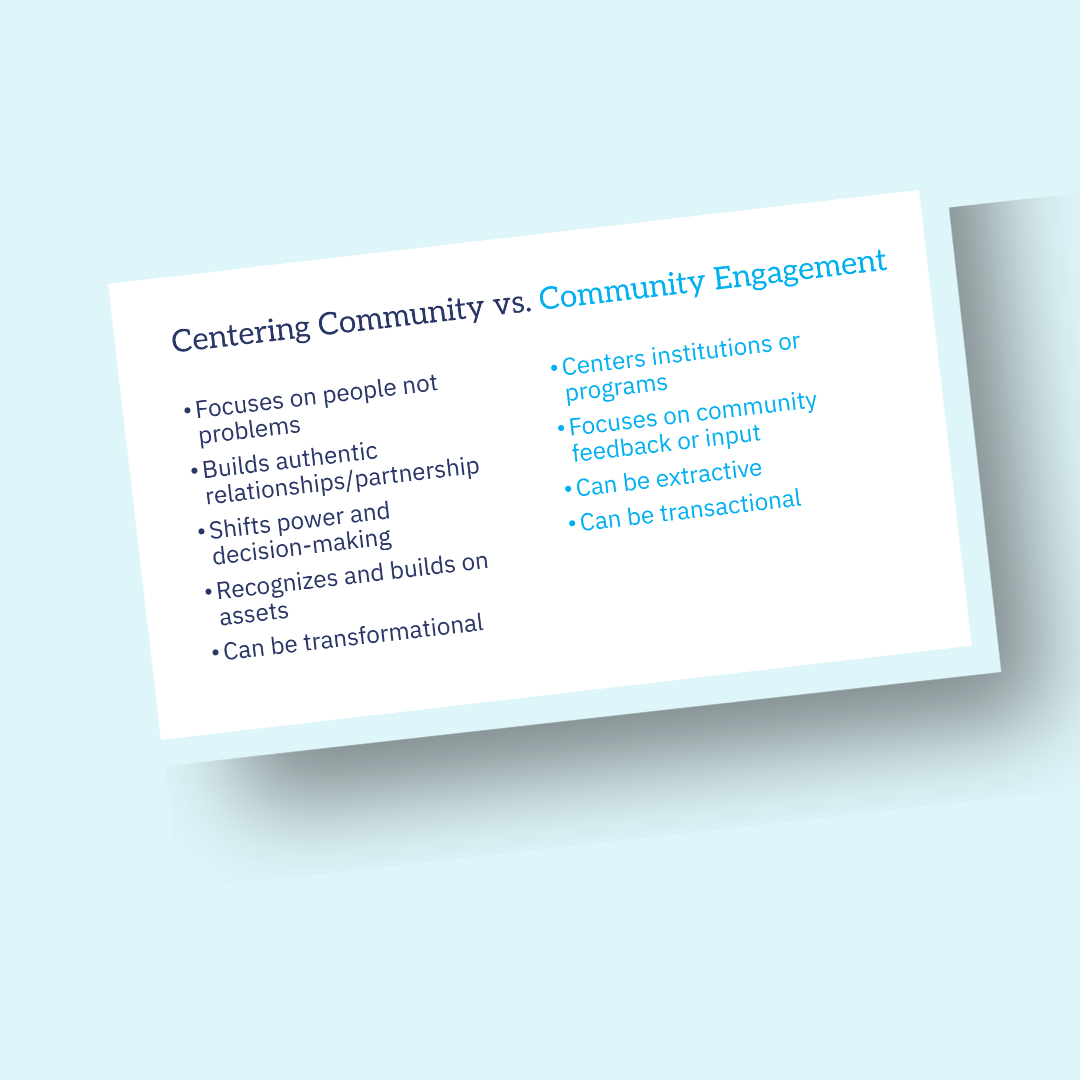
This slide highlights the differences between traditional community engagement and centering community.
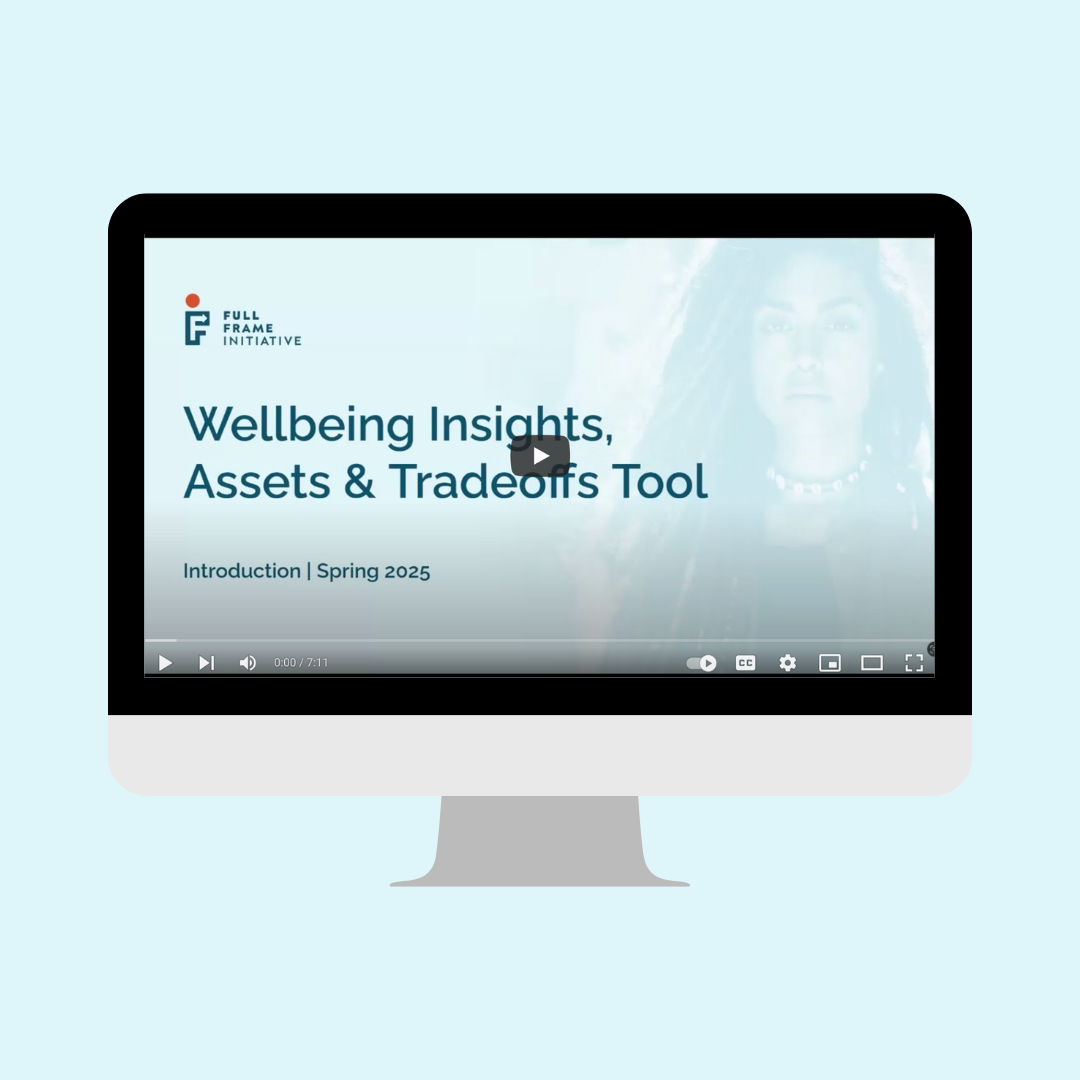
FFI's CEO Katya Fels Smyth provides an overview of the Wellbeing Insights, Assets & Tradeoffs Tool (WIATT).
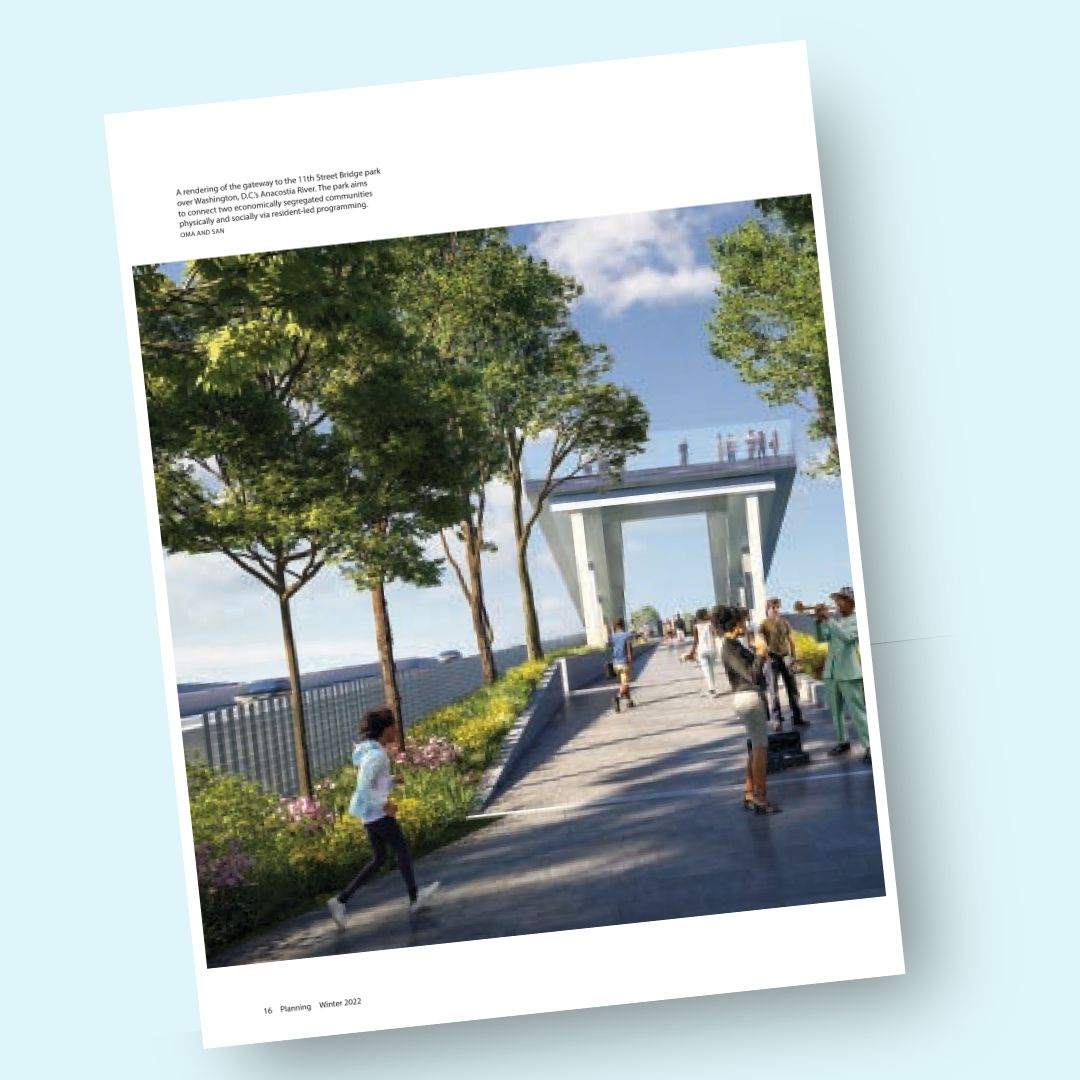
Brookings Metro Senior Fellow Xavier de Souza Briggs and Full Frame Initiative CEO Katya Fels Smyth outline a framework grounded in the Wellbeing Blueprint to guide new investments in the built environment.
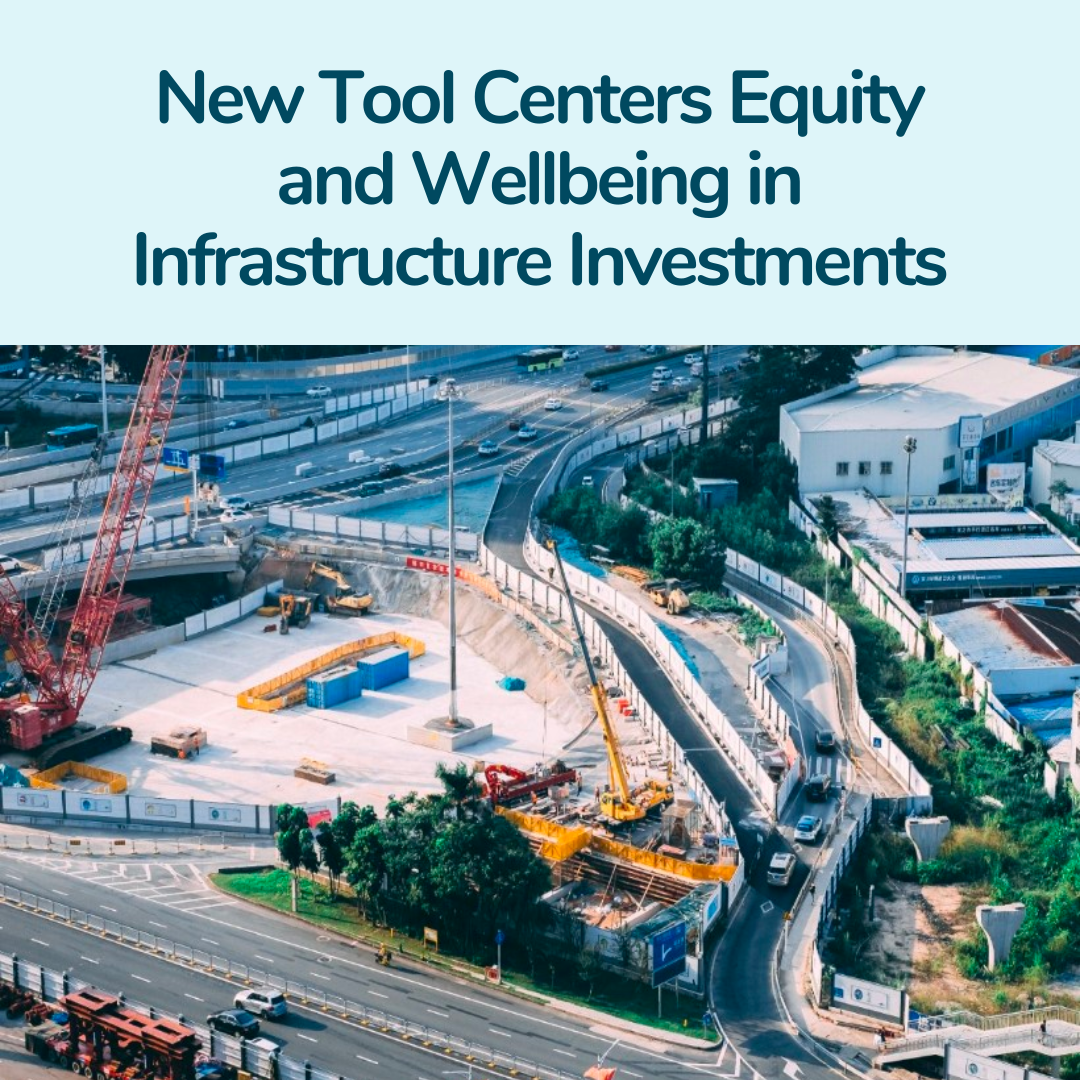
Infrastructure investments aren’t neutral. Imagine a future where people’s wellbeing is the starting place for how decisions are made about what, where, when and even whether we build. Our new tool is a step towards that future.
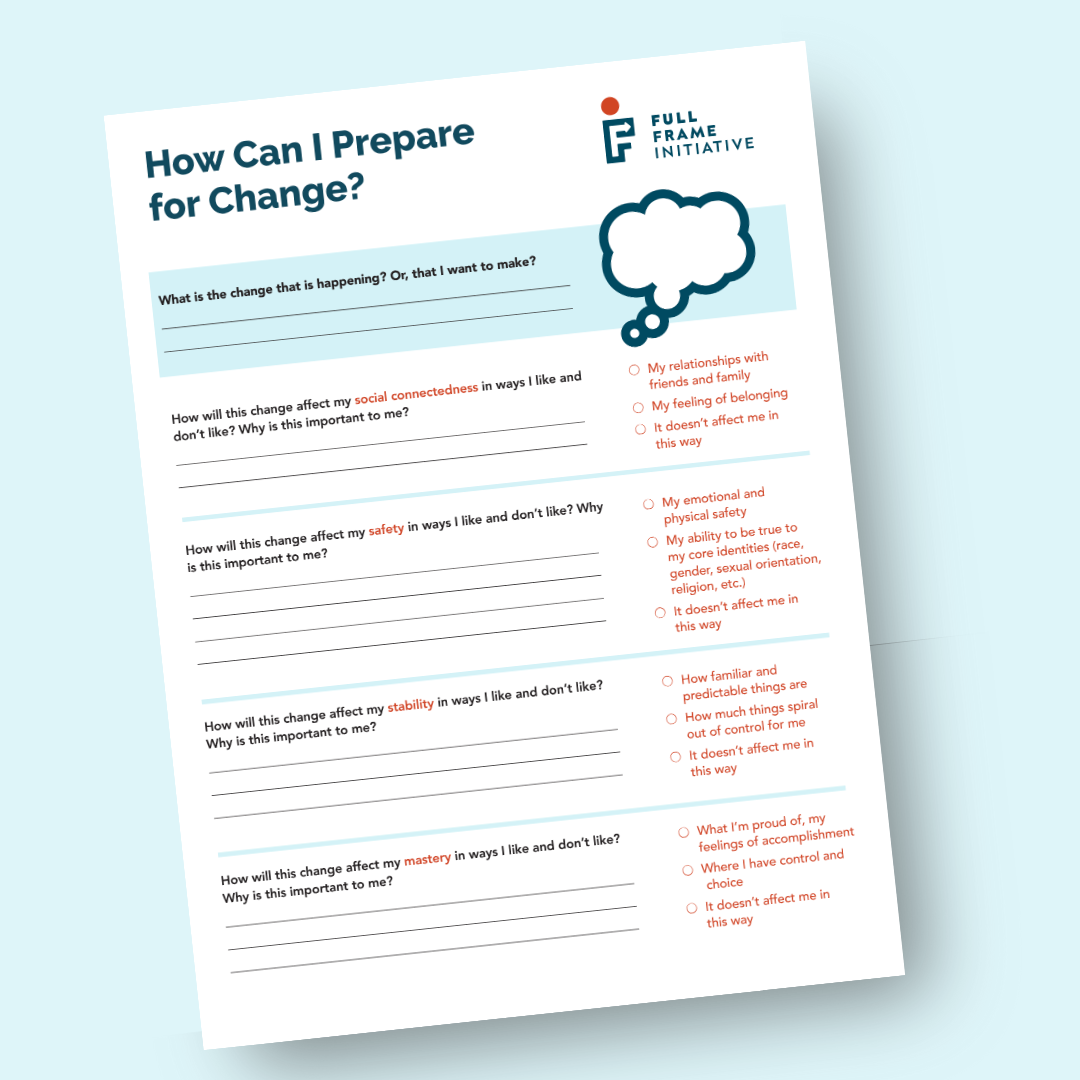
This resource helps individuals think through how they can prepare for change and anticipate the tradeoffs that come along with making a change or decision.
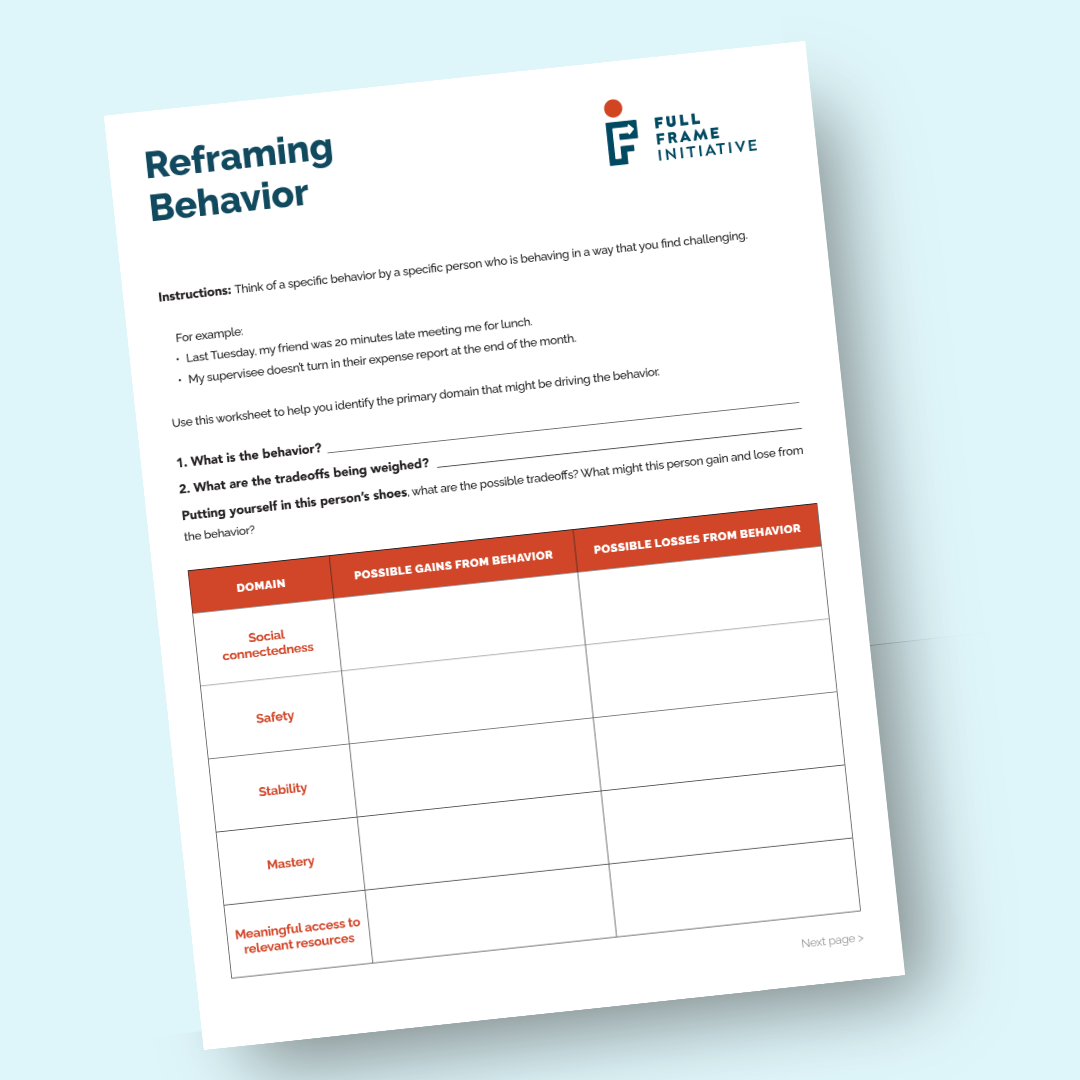
This resource is a worksheet that you can use to reframe the behaviors of anyone (friends, family, coworkers, clients, patients, etc.
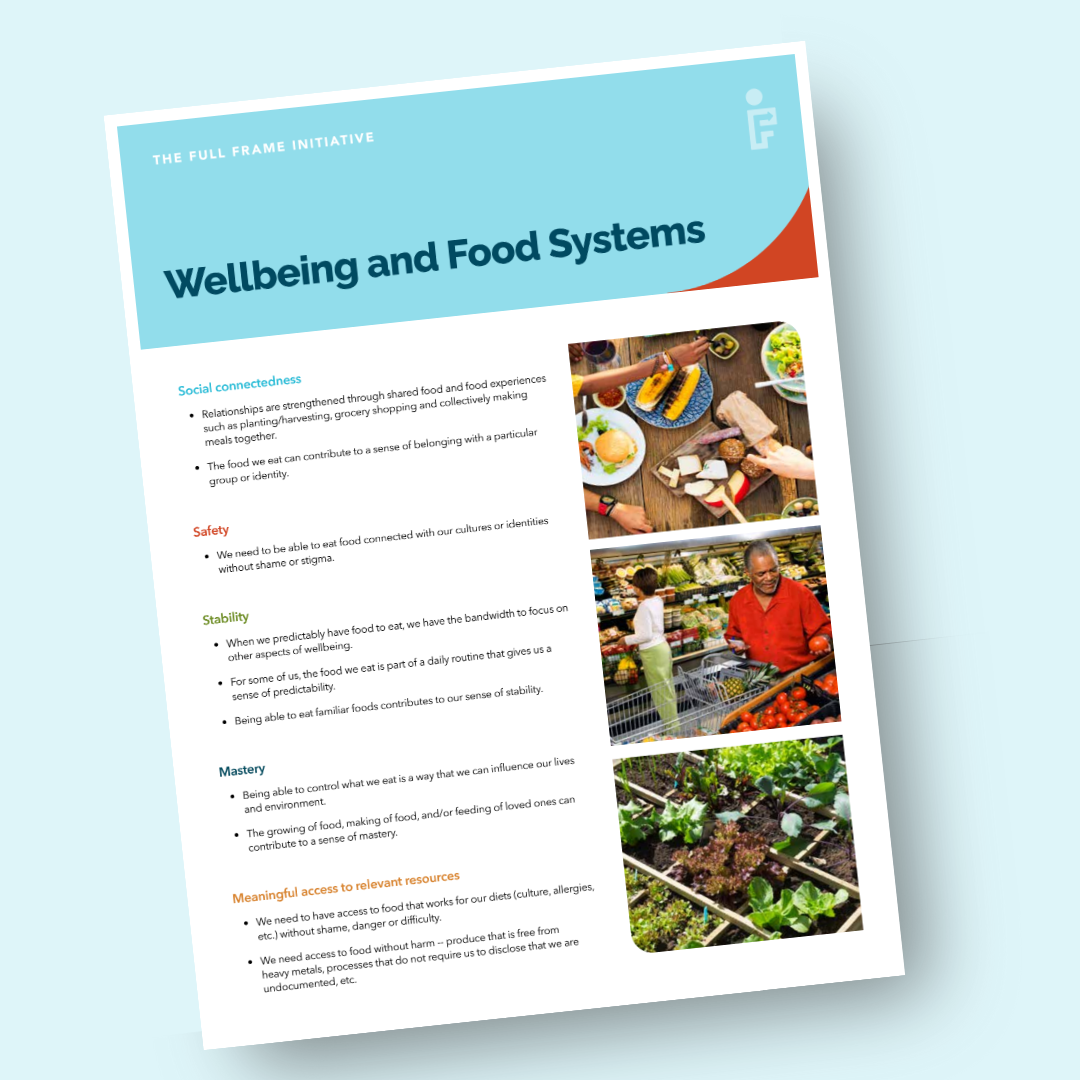
This resource looks at this food systems through the lens of the Five Domains of Wellbeing.
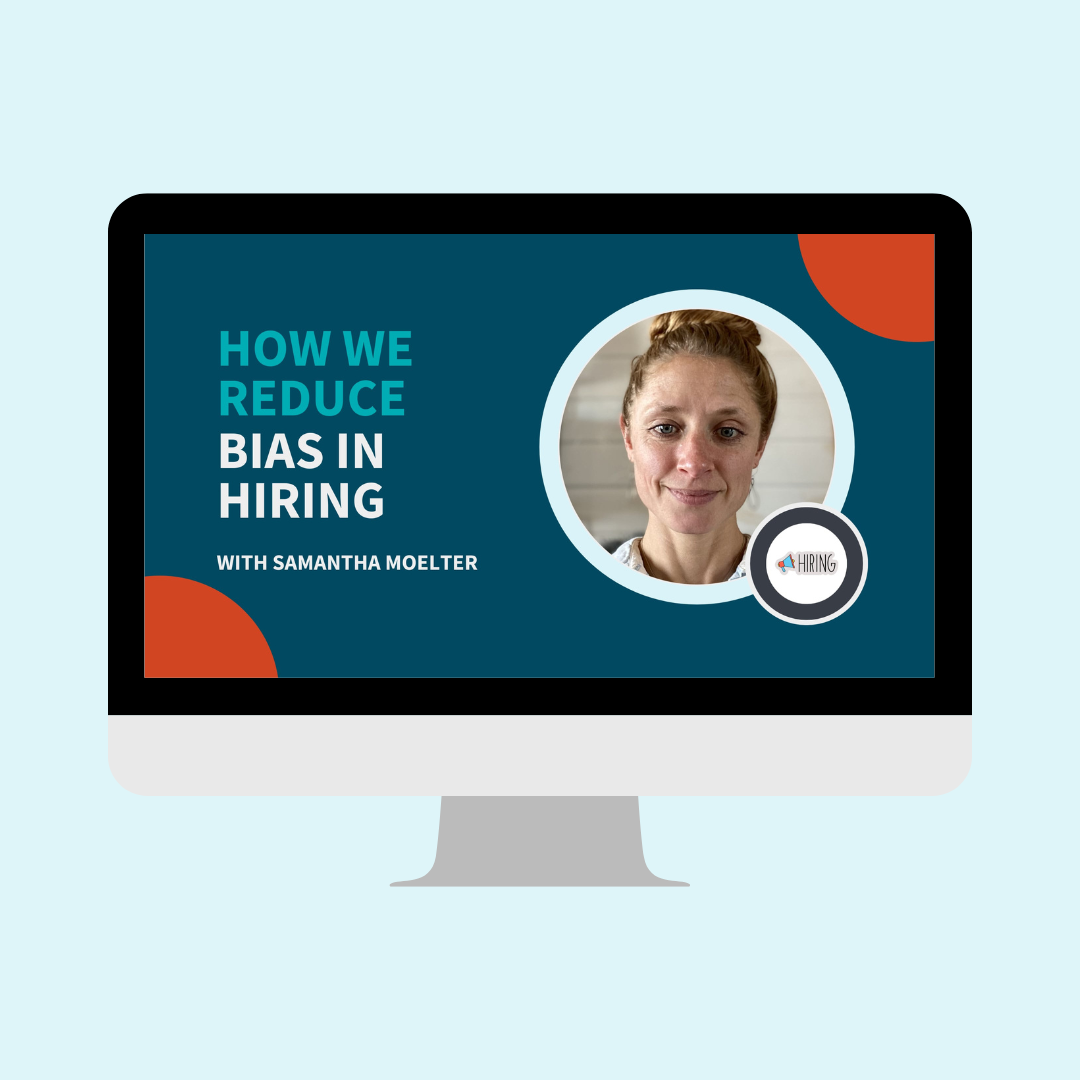
This video explores how FFI redesigned its hiring process to reduce bias and align with equity values, with insights from Applied.
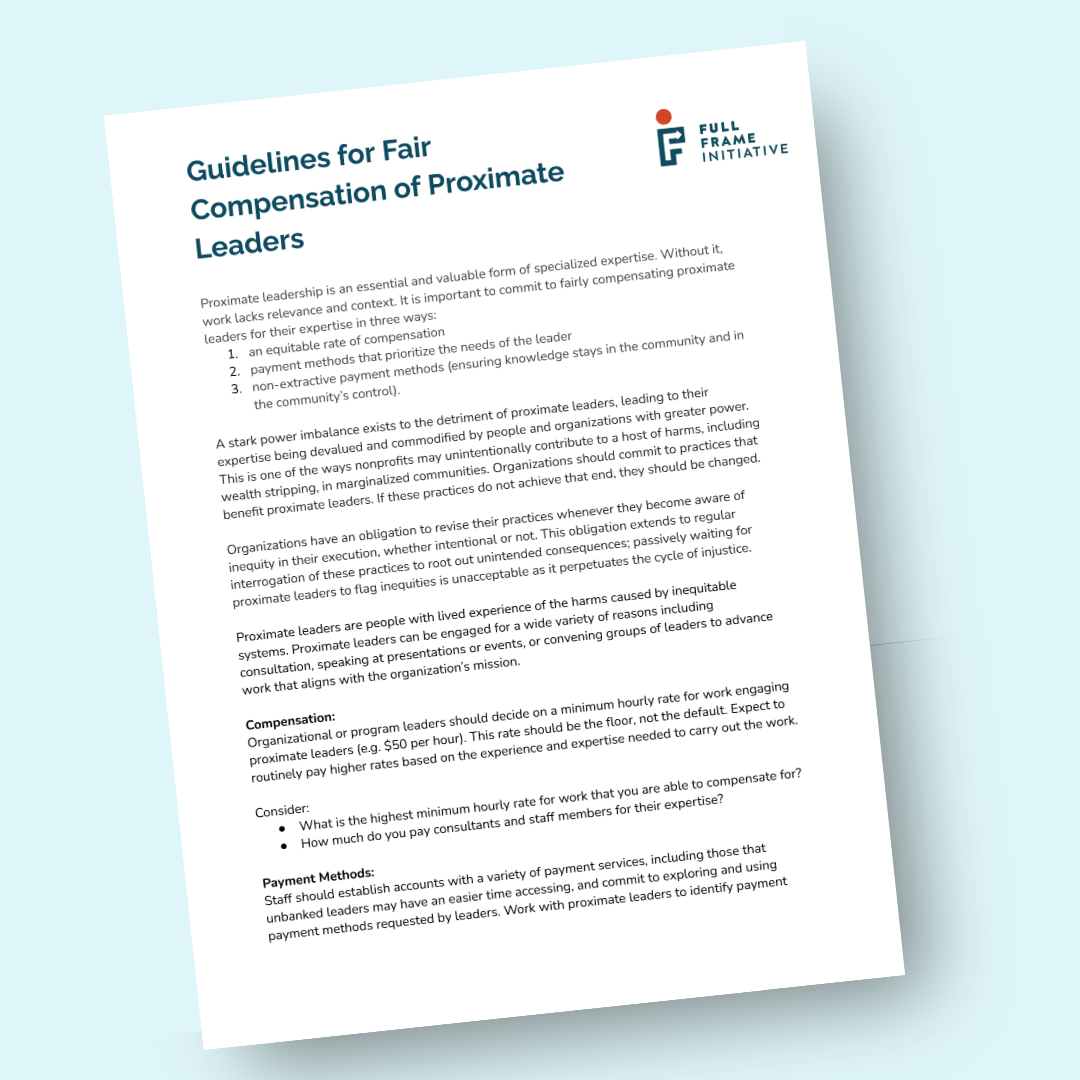
These documents contain questions to consider when determining compensation aligned with the Community Bill of Rights.
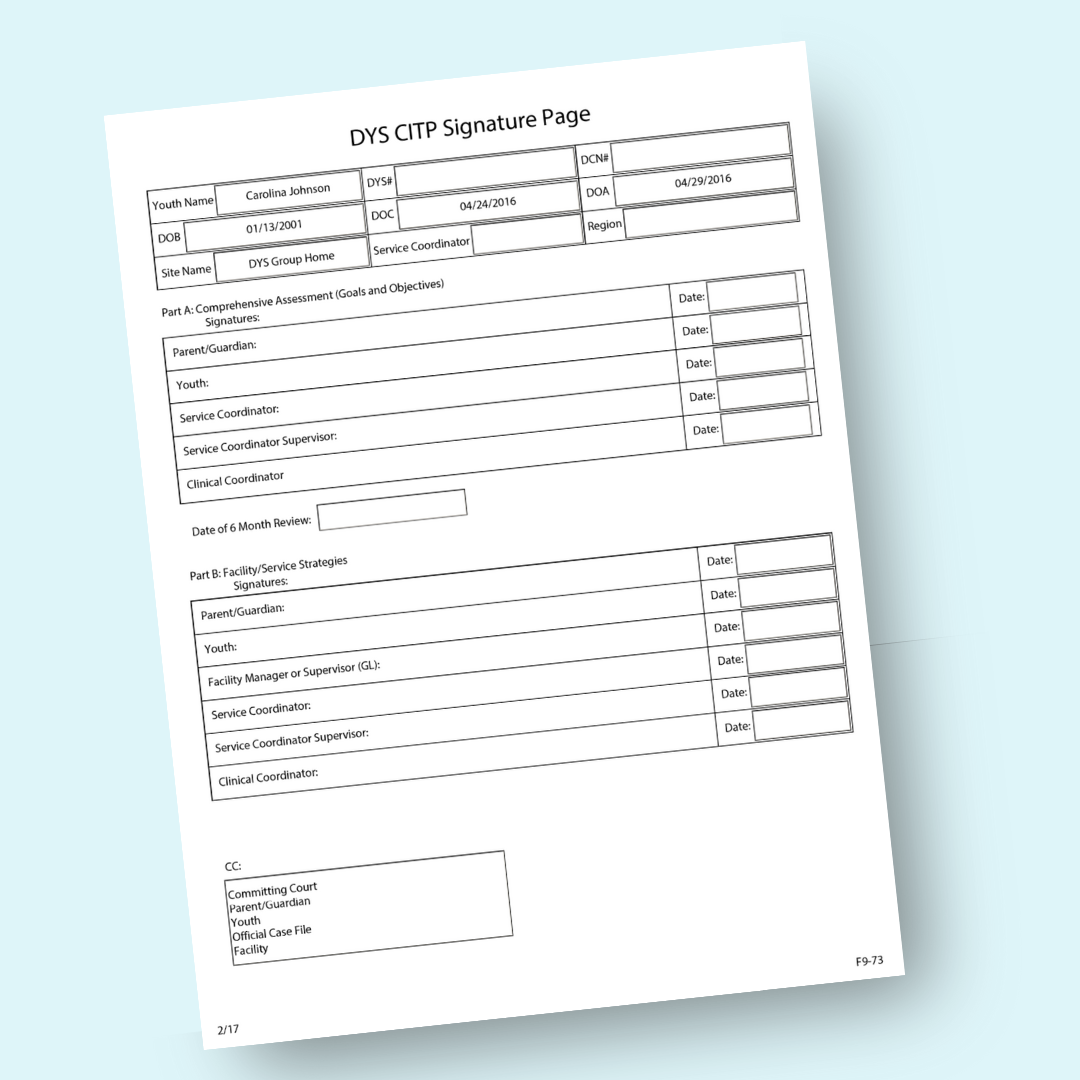
This is an example of an assessment, planning and treatment process for the juvenile justice process that embeds tradeoffs and supports wellbeing.
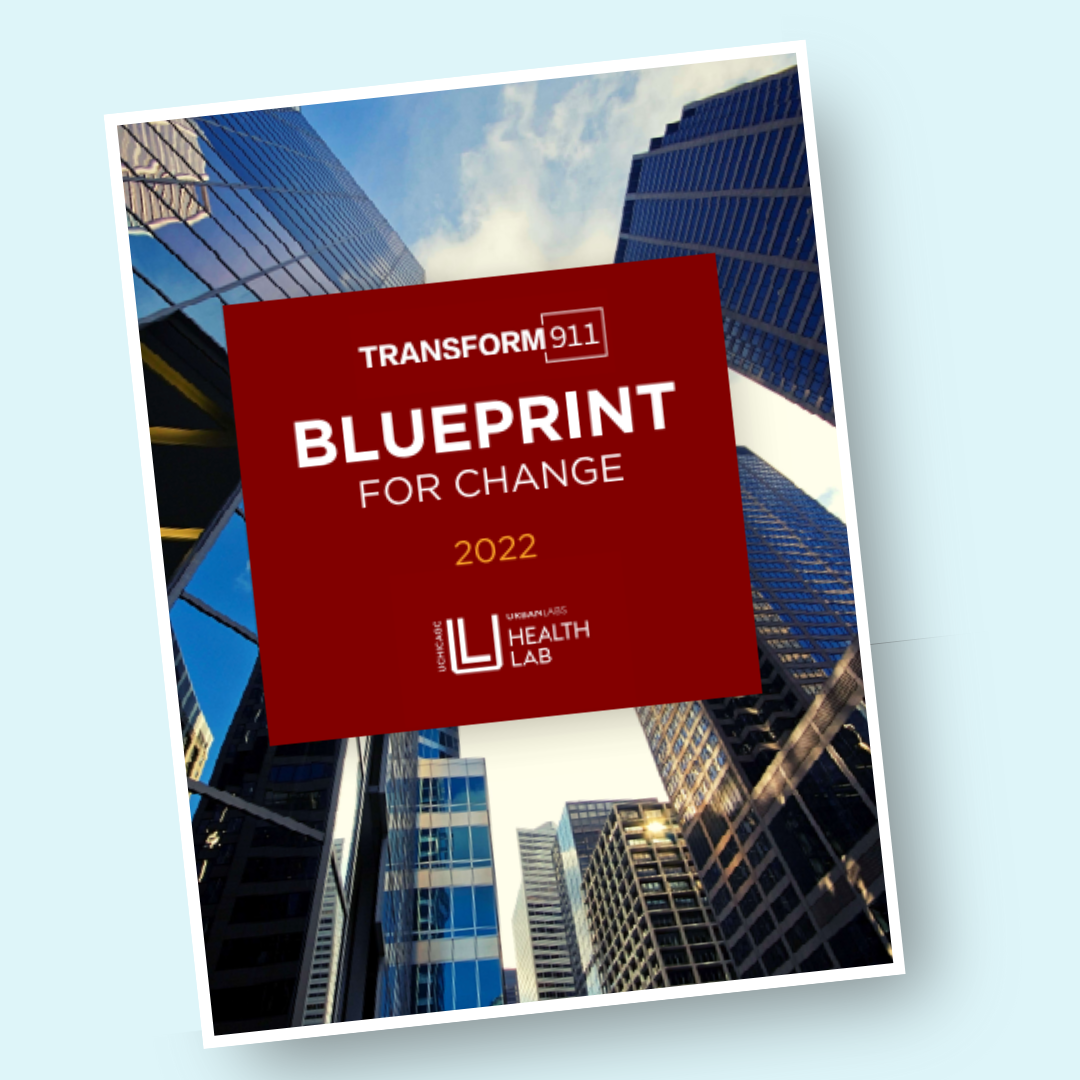
To increase access for wellbeing for both people served by the emergency response system and those who work within it, it’s critical that we reimagine 911. The Transform911 Blueprint for Change is the starting point for doing just that.
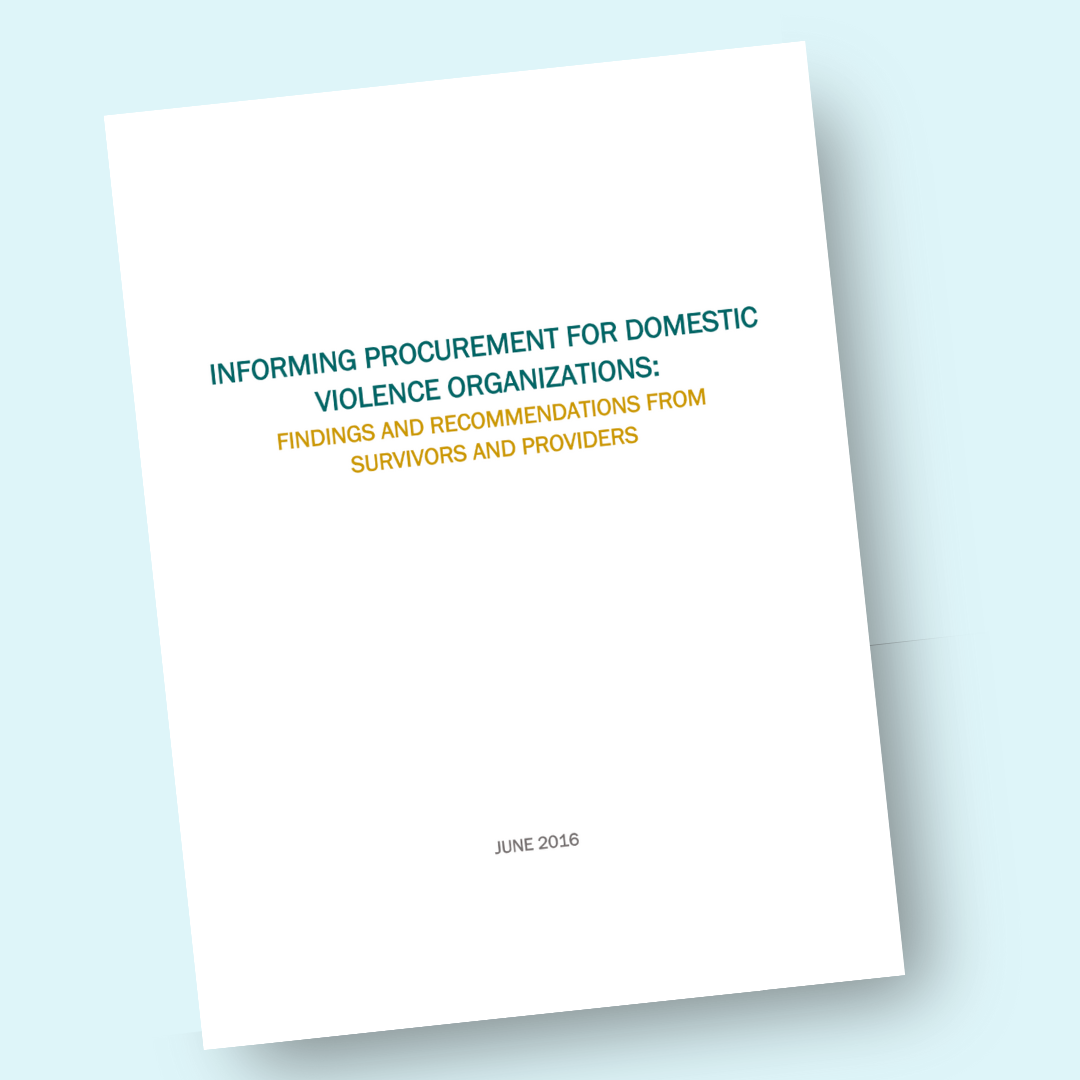
This is a report commissioned by Massachusetts Department of Children and Families that details findings and recommendations from survivors and providers to address changes in procurement for agencies addressing domestic violence and sexual assault.